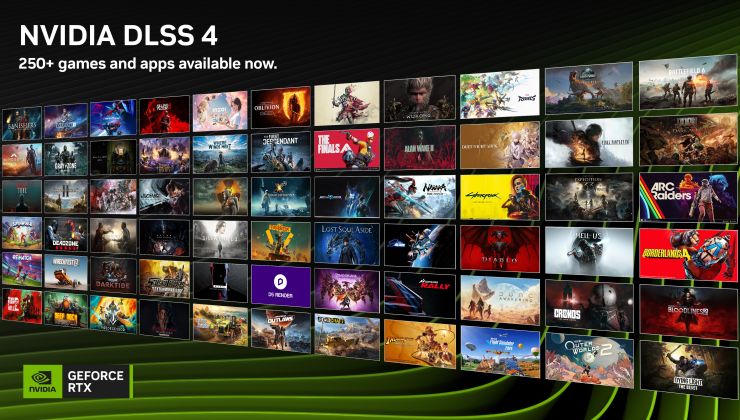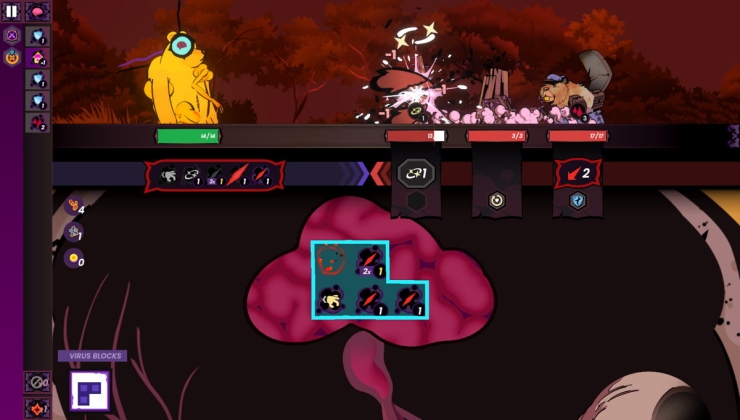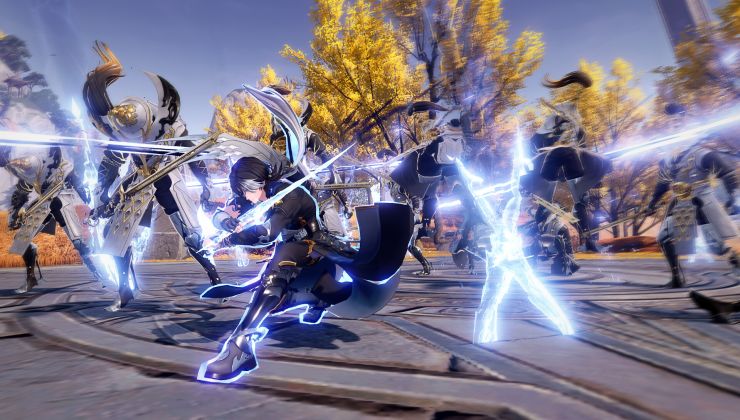Irdeto, the company behind Denuvo and the newer Denuvo Anti-Cheat have announced that developers on Steam can now get direct anti-cheat integration through Steamworks. Denuvo is one of the most popular DRM solutions, with it often appearing in Windows releases of popular AAA games. Now with this Anti-Cheat easily available direct through Steam no doubt many developers will look to use it.
The question is: how will this affect Linux compatibility of games both native Linux builds and Windows games run through the Steam Play Proton compatibility layer? Back in May, we reported that the Denuvo team did mention they were aiming for support of Proton.
After shooting a message over to Irdeto here's what Reinhard Blaukovitsch, Managing Director of Denuvo by Irdeto, said in reply:
We can confirm that future deployments of Denuvo Anti-Cheat will not prohibit Linux users from accessing single-player and non-competitive multiplayer features of their games. For example, campaigns or custom multiplayer game matches. Linux users will not be required to install a kernel-mode driver, and the lack of anti-cheat software will not prevent their game from starting.
Even though there is no kernel-mode driver on Linux, the userspace game process performs significant cheat detection. Linux users accessing multiplayer will be reported to online services as running at lower integrity. Some game developers may choose to prevent Linux users from accessing ranked or competitive game modes. We'll do our best to convince developers and publishers to allow Linux users to participate in competitive modes. Still, we must be honest with them and disclose our reduced detection capability on Linux.
We'll communicate concrete plans for growing Linux detection capability and how the community can contribute as our userbase grows.
In a further clarification to us, we asked if this was only for Windows games in the Proton compatibility layer or if it will have the same kind of support for native Linux builds to which they replied "This is for Windows games in Proton".
When asked for their plans (if any) to support native Linux builds of games, here's what they said:
We have not yet been engaged by an organization expressing interest in native anti-cheat support for Linux. Once there is demand, we’d have no hesitation to take on that task. It’s worth noting that we’ve had anti-cheat technology on consoles for many years now. Our experience with Linux-like environments on the Nintendo Switch and Sony PlayStation 4 & 5 indicates that effective native Linux anti-cheat would require a from-the-ground-up effort and not just a port. Denuvo Anti-Cheat is heavily dependent on hardware security features which makes it fairly kernel-agnostic, so it’s just a matter of ‘when’ not ‘if’. Our best bang-for-the-buck in the short term is Proton.
So there you have it. If demand comes, they will do it too and it's only a matter of time. Nice to see them being so open about it and happy to chat with us on it so clearly.
Quoting: ShmerlI thought DRM-free music situation isn't bad. There are a number of good stores where you can get even DRM-free FLAC:Havent heard of these places before and didnt know tidal sold music every time i went or was sent to their site i only ever saw their streaming service. Guess it doesnt help that i dont buy a lot of western music and my friends never buy music they only stream it.
Quoting: ShinyaOsenHavent heard of these places before and didnt know tidal sold music every time i went or was sent to their site i only ever saw their streaming service.Yeah, on Tidal it's a bit obscure, but you can actually buy DRM-free FLAC there.
Quoting: Shmerli didnt said that was their solution, i cant remember wich one was, in any case, you should at least take a look at it to see if there is any techinical issue that you didnt tought about before or to call it bullshit knowing what you're talking aboutQuoting: elmapulvalve did an talk about this topic, you should take a look at it.Well, I will when they'll develop a server side AI like I described above. Until then, I have no interest in client side rootkits whatsoever. I don't buy the argument that it's the right way to address this problem.
Quoting: noderunnerGame developers are notoriously awful at anti-cheat. The solution should be to architect the game server to perform anti-cheating checks and generally to avoid trusting the client (see VACNET). Instead we have the lazy way, which is installing invasive software to prevent the game client from being tampered with. I don't want native Linux anti-cheat, I especially don't want an invasive Denuvo kernel module. Just let us play single player and local multiplayer in peace.i dont see why denuvo being avaliable for linux/working on linux would magically make every company adopt it as anti cheat for their offline games
Quoting: BielFPsIt's sad how anti cheat solutions are more effective to block legit Linux players instead of actual cheaters. And for anti-piracy protection, I haven't see any successfully case with Denuvo since the Chinese had their first success of crack them.This last year has me of the mind that Beijing Sandingmeng may have been supported by particular interests seeking to better understand systems of digital control.
Quoting: elmapuland not all games can run server side only, what about those button mash mini games where the player who presses the button faster wins? its impossible to secure the input against hacking.
Alright, my snarky replies aside, the differences in perspective here are just from assigning completely different value to certain things things.
Last edited by GustyGhost on 20 Jan 2021 at 3:29 am UTC
there is a ton of really cool cooperation efforts going around *between* DEs, distros, etc
they don't always agree and sometimes this leads to parallel efforts, but this isn't a blodshed cutthroat market competition like with competing closed-source software or the way Steve Balmer made MS treat Linux
sure, foss software devs are human, and can have real emotional fallouts depending on the disagreement they have with each other, but it's usually very much a debate and not a war
and source code can be repurposed, etc... Linux Mint's X-Apps is actually a nice example of cross-distro and cross-DE effort, because thoae apps are good for Gnome, Cinnamon, XFCE, ... and they are made with the explicit premise to not run only on Mint, but as many DEs as could fit the app's lean requirements
the fallout between LM and Ubuntu's Snaps is very well documwnted by Mint devs, and they don't actually impede Snaps, just ship it behind a simple lock because Ubuntu started turning "apt install xxxxx" into a way to automatically install snaps and the snap version of the app, instead of a normal repo app (eg Chromium)... locking snaps was the only way they could prevent this which for them is a shady harmful practice by Canonical... but the choice to (re)enable snaps is well documented, along with the entire reasoning
that is a strong disagreement, but a well-managed one at that
Quoting: Marlockopensource software that is developed primarily to work with Gnome or KDE doesn't qualify as "exclusives"... because it is opensource to begin withfirst off, who said open source?
some softwares like davince resolve do a lot of things that no open source software do, and only support redhat or something like that.
second:
even if its open source, it dont matter if there is no one willing to port it to other distros and it dont load on then it still is an exclusive.
the key issue is that distro mantainers should try to reduce the costs of supporting their distros and others (by cost i'm including time) instead of trying to make it harder to make sure no one would want to have this much trouble on their backs.
sure if an bunch of people join efforts, they would port it, but the fact that no one is willing to do that, proves that this fragmentation strategy works.
Quoting: Marlockbut this isn't a blodshed cutthroat market competition like with competing closed-source software or the way Steve Balmer made MS treat Linuxhell i saw a lot of people installing the windows version of an program on wine instead of the native linux version due to that shit, imagine if we didnt had windows.
not to mention that magic thing called "android" ya know, that thing that is incompatible with every other distro, and that every other distro is incompatible with.
hell the windows emulators for android are better than what we have on linux, that is ridiculuous for an thing that runs the same kernel.
and before anyone blames google for making android incompatible with the desktop linux, well...
the linux desktop is not compatible with linux desktop, how can we blame google for making their own thing while we were fighting each other to make ours instead of cooperating?
if we keep fighting each others like this, at the best case scenario is microsoft keep their domination, and the worst is:
linux dominates but its an "android 2", except that this time there isnt enough of an argument to try to convince anyone to use anything else.
X-Apps? never heard of it before, and honestly, its too litle too late.
first it need to support windows too, otherwise there wouldnt be enough of a market for most developers to use it.
second: its it any better than visual studio/ vscode?
thirdy: it support all the features? eg: tabs, buttons etc, because the last time i found an IDE that supported all the DE , it lacked some features, or when it didnt the IDE only supported visual basic as the programing lang...
and forth, honestly, now i'm just using godot all the way, it has all the features that i could possibly want+ more, the only issue is that it didnt supported qt+gtk, instead it makes it own toolkit, but that is an small price to pay compared to what it offer.
Last edited by elmapul on 20 Jan 2021 at 5:32 am UTC
Quoting: elmapulO_oQuoting: GuestWhat anti-cheat is WoW using? I mean we can play it for years on Linux without problems and there is competetive gaming too in the PvP area.we cant play in the official servers
yes we can.....i've played wow with wine since 2008 with no issues...in fact i'm playing wow classic right now....on Mankrik
It’s us Linux users who bring in other considerations like privacy and control over their own machines into the discussion, since these are among the reasons we use Linux in the first place. But we are 1 per cent. This discussion does not exist for the vast majority of people out there. It’s us who want to have our cake and eat it. And it’s not a jab or anything, I’m like this as well.
Last edited by damarrin on 20 Jan 2021 at 9:06 am UTC
Quoting: damarrinFor someone who just wants to play an online game it’s irrelevant how the anti cheat is implemented and what it installs in their system as long as things continue working. If they’re not a cheater, they are happy they will have less of those to deal with.True. I've been vocal to my friends against Riot's anti-cheat for example, but despite how much I try to explain how dangerous and even nonsensical anticheat solutions like this are, they simply do not care. It could send nudes of them to 4chan for all they care, as long as it prevents cheating (which it doesn't, but makes you feel like it does so it's good enough I suppose). They lack the education to understand the issue in front of them and such education involes too much text they don't care to read.
It’s us Linux users who bring in other considerations like privacy and control over their own machines into the discussion, since these are among the reasons we use Linux in the first place. But we are t1 per cent. This discussion does not exist for the vast majority of people out there. It’s us who want to have our cake and eat it. And it’s not a jab or anything, I’m like this as well.
For competitive gaming/Anti-Cheat I was hoping to outsource the security risks to GeForceNow, but so far my experience isn't good - I probably keep a dedicated Windows machine for competitive gaming (LOL, Apex Legends, etc.).
Quoting: ShmerlThanks for the links, most of the time I'm using Spotify for music (not really listening to it that much like few years ago and doesn't bother me if I don't own anything, for me it's just interactive radio). For looking on DRM free content I can also recommend this site https://www.defectivebydesign.org/guideQuoting: ShinyaOsenI thought DRM-free music situation isn't bad. There are a number of good stores where you can get even DRM-free FLAC:Quoting: Zlopezat least there are legal options for games, not like for movies or musicI always forget how hard it can be to get DRM free music im so used to buying from bandcamp and japan and my dad buys classical music. Japan still has a CD market and have multiple DRM free digital stores some times you do need to vpn to be able to buy the music. Movie on the other had ya good luck trying to get a DRM free version in good quality legaly since Bluray's DRM hasnt been fully cracked like DVD.
* https://bandcamp.com
* https://us.7digital.com
* https://uk.7digital.com
* https://www.junodownload.com
* https://store.tidal.com
* https://www.prestomusic.com
* https://www.prostudiomasters.com
* https://www.hdtracks.com
* https://www.jamendo.com
Quoting: LungDragoMost of the people doesn't bother with these things. You need to accept them to play the game, so you really don't have choice, if you want to play it. It's the same as with EULA, you can't really Disagree with it and still use the product.Quoting: damarrinFor someone who just wants to play an online game it’s irrelevant how the anti cheat is implemented and what it installs in their system as long as things continue working. If they’re not a cheater, they are happy they will have less of those to deal with.True. I've been vocal to my friends against Riot's anti-cheat for example, but despite how much I try to explain how dangerous and even nonsensical anticheat solutions like this are, they simply do not care. It could send nudes of them to 4chan for all they care, as long as it prevents cheating (which it doesn't, but makes you feel like it does so it's good enough I suppose). They lack the education to understand the issue in front of them and such education involes too much text they don't care to read.
It’s us Linux users who bring in other considerations like privacy and control over their own machines into the discussion, since these are among the reasons we use Linux in the first place. But we are t1 per cent. This discussion does not exist for the vast majority of people out there. It’s us who want to have our cake and eat it. And it’s not a jab or anything, I’m like this as well.
Quoting: ZlopezMost of the people doesn't bother with these things. You need to accept them to play the game, so you really don't have choice, if you want to play it. It's the same as with EULA, you can't really Disagree with it and still use the product.Fascinating, we do have a choice, though. There is plenty of other products for us to use, it's not like we're forced to play games with shitty DRM and anticheat shenanigans. We could just move on to something else. That applies to us as in Linux gamers, so definately for Windows gamers as well. Strangely people seem drawn to the same shitty games like moths to a flame. Publishers would realize quickly that anticheat=bad if it made cuts into their revenue but gamers seem notoriously bad at voting with their wallets. Or just generally incapable of any more complex decision save for "game fun, me play" and "game not fun, me not play". It might've just killed them, but it is fun, so it is technically a good game :D
Last edited by LungDrago on 20 Jan 2021 at 12:11 pm UTC
Indeed if we have any hope of growing beyond 1%, then we need more such gamers to join the ranks and, well, game. Regardless of the DRM/anti-cheat landscape.
But I'll stick to my guns. I despise Denuvo as a company for their root-kit approach to DRM. I've refused entire Humble Choice months in the past because they've featured Denuvo-ridden games (although annoyingly got the one with Yakuza before I realised). I don't support them and I never will. Despite how open they're being here, I sincerely hope their efforts on the anti-cheat front fails spectacularly. The last thing we need is yet another prevalent EAC-like solution barring entry to online games. And Denuvo's previous record shows that once they've cornered enough of the anti-cheat market, they'd start bundling their DRM too, making gaming worse in literally every possible way - intrusive, compulsory for single-player, reduced performance, binary, proprietary bullshit.
No thanks.
Quoting: GuestI don't think this has anything to do with capitalist propaganda. These companies are mostly profit driven, so if they get more money with this DRM, they will go for it. It's sad that people are buying those games, but I would also point on the thing that most gamers doesn't know that the game has DRM or what DRM even is. And some of them find out after buying the game, not before.Quoting: damarrinFor someone who just wants to play an online game it’s irrelevant how the anti cheat is implemented and what it installs in their system as long as things continue working. If they’re not a cheater, they are happy they will have less of those to deal with.This is the result of the incredibly harmful capitalist propaganda. It's like how people in some countries view universial healthcare as a negative thing. But sadly computers and especially gaming is surrounded by some really nonsensical laws and unethical practices.
It’s us Linux users who bring in other considerations like privacy and control over their own machines into the discussion, since these are among the reasons we use Linux in the first place. But we are 1 per cent. This discussion does not exist for the vast majority of people out there. It’s us who want to have our cake and eat it. And it’s not a jab or anything, I’m like this as well.
Quoting: LungDragoYou have a choice if you don't want to play this particular game. But if you want to play it, you don't have any. It's same like being excited about one movie, but going to see another, because that one is only on Netflix. Most people would buy the Netflix subscription to watch the movie instead of choosing to watch something else. The hypetrain usually works as manipulation strategy well enough. If it didn't there wouldn't be exclusive titles on only one platform.Quoting: ZlopezMost of the people doesn't bother with these things. You need to accept them to play the game, so you really don't have choice, if you want to play it. It's the same as with EULA, you can't really Disagree with it and still use the product.Fascinating, we do have a choice, though. There is plenty of other products for us to use, it's not like we're forced to play games with shitty DRM and anticheat shenanigans. We could just move on to something else. That applies to us as in Linux gamers, so definately for Windows gamers as well. Strangely people seem drawn to the same shitty games like moths to a flame. Publishers would realize quickly that anticheat=bad if it made cuts into their revenue but gamers seem notoriously bad at voting with their wallets. Or just generally incapable of any more complex decision save for "game fun, me play" and "game not fun, me not play". It might've just killed them, but it is fun, so it is technically a good game :D
Not everybody is able to sacrifice something he loves, because it has some (in this case big) flaws.
Quoting: Hamishdrm can be broken later on, windows users dont have an issue with that, because there are enough hackers on the windows comunity to break any drm they might have.Quoting: elmapuli think we should let the fight against drm with the windows users, while we fight for linux marketshare, we can join they in their fight later on, but we dont have enough people/resources to fight in both fronts at the same time run today, live to fight tomorrow.The thing is, if I was of the mindset that was okay with DRM solutions, I would not be using Linux in the first place. Whoever fights monsters should see to it that in the process he does not become a monster. And if you gaze long enough into an abyss, the abyss will gaze back into you.
meanwhile we dont have neither all the games nor the cracked games.
we would have both if we had an better marketshare.
Quoting: elmapuldrm can be broken later on, windows users dont have an issue with that, because there are enough hackers on the windows comunity to break any drm they might have.Let's be honest, if running a game with a crack to get around DRM is considered an acceptable user experience, so is running a Windows game through WINE with no support. We can do better on both platforms.
meanwhile we dont have neither all the games nor the cracked games.
we would have both if we had an better marketshare.















 How to setup OpenMW for modern Morrowind on Linux / SteamOS and Steam Deck
How to setup OpenMW for modern Morrowind on Linux / SteamOS and Steam Deck How to install Hollow Knight: Silksong mods on Linux, SteamOS and Steam Deck
How to install Hollow Knight: Silksong mods on Linux, SteamOS and Steam Deck